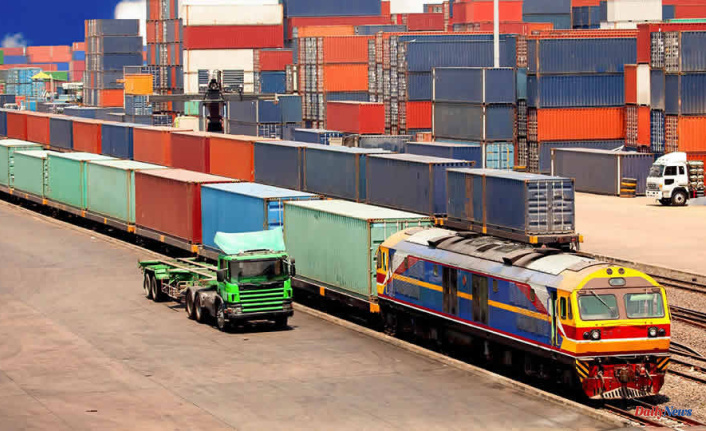The whole world is now concerned about the problem of ecology. More and more consumers are paying attention to this, more and more studies show the terrible effect of industry on nature, and more and more companies are becoming eco-friendly. Logistics is one of those business branches with a lot of negative environmental impact. And every company that is associated with this industry should be aware of this and reduce the negative impact. Lax Freight transportation company is also worried about this.
Green logistics is becoming a trend that positively impacts both business and the environment. The traditional approach to logistics often neglects environmental sustainability but in vain. And we hope to change that. Because with the introduction of these technologies and solutions for logistics, it is possible to reduce the delivery cost significantly. In this article, we want to consider the concept of green logistics from different points of view and perspectives.
Green cargo and green logistics: meaning?
In logistics, the main criterion for environmental friendliness is the transport by which goods are delivered. So, if transport has a low or zero level of emissions into the atmosphere, then this is considered an environmentally friendly approach to delivery. Green logistics transportation requires a lot of innovations and new technologies, such as electric, hydrogen engines in trucks, alternative fuels, and efficient solutions for the route. More and more companies are introducing this practice in their work. Examples of green logistics: 300,000 commercial trucks and buses powered by electric and alternative fuels were already in use in 2020, which is 1 out of 5 commercial trucks.
But what is green logistics' definition? These are strategies to reduce the impact of logistics processes on the environment. The concept of a carbon footprint is fundamental here - the totality of all greenhouse gas emissions during operation. Companies are doing their best to reduce the carbon footprint of their activities by adequately sorting and disposing of garbage (which is a very big problem for logistics), reducing energy consumption, etc. Experts note that although green logistics poses significant challenges to companies, digitization of processes helps a lot in reducing waste and controlling the eco-friendly operation of the entire supply chain.
You might think that green logistics is very similar in concept to reverse logistics, but this is a misconception. In reverse logistics, the goods are simply returned back - from the customer to the seller, roughly speaking. And this is not the same as green logistics. Although the practices of returning goods can become part of a strategy to reduce the company's carbon footprint. You have probably seen that some manufacturers offer a service for the removal of goods and their disposal. This is very useful, some of green logistics example: regarding technology. After all, it needs to be thrown away and disposed of in a certain way, and an ordinary buyer may not know about it. And the company offers the return transportation of the goods to do everything according to the standards.
Why should ecology be a priority for all companies?
We are absolutely sure that logistics companies should take a responsible approach to the problem of environmental pollution. After all, transportation is the largest source of greenhouse gas emissions in the United States (30%). This is a large-scale figure, given that there are many other industries (clothing manufacturing, agriculture, industry, mining) that also harm nature. Therefore, it is so important to realize the importance of green logistics in the supply chain as soon as possible.
What are the advantages of green logistics?
1. Reducing the negative impact on the environment
We have already described in detail that ecology should be our priority in working with delivery. We encourage everyone to do this and use eco-friendly solutions in our business.
2. Fewer expenses
It may seem that a 3-5% reduction in logistics costs is not impressive. But with a large flow of deliveries and constant cooperation with logistics companies, this 5% can turn out to be millions and billions of dollars.
How can you reduce costs by implementing eco-friendly solutions? We have several options.
-
Encourage sustainable delivery options when placing an order
Goods can be combined into one large parcel to deliver it in one herd in one day. And not to deliver one pack each time, spending a lot of resources. You can offer free shipping, but it will come a little later. Believe us; many customers will choose economy over speed. And you will choose an eco-friendly solution.
-
Plan routes
The less a trucker spends on the road, the fewer emissions into the atmosphere. There are many convenient applications to optimize routes to use less time for delivery, fewer food trucks, fewer drivers, and less mileage.
-
Use hyperlocal supplies from stores
This will speed up delivery, reduce fuel consumption, and help the environment.
How to apply eco-friendly approaches in logistics
1. Environmental criteria in the procurement policy
This includes environmentally friendly packaging, restrictions on the use of plastic, environmentally friendly consumables for work, digitization of all work, and the use of subsidies for the purchase of environmentally friendly transport.
2. Eco-friendly warehouse
Find out about the warehouse certification requirements for eco-friendly parameters and use them in your construction. You can also limit electricity use, properly sort waste, and reduce paper use.
3. Measure the carbon footprint of your company's logistics operations, consider sustainability measures, and monitor their results
Green logistics challenges
Of course, if sustainable green logistics solutions were so easy to implement, then we would not have written this article, and everything would be fine with the environment. There are problems. which are faced every day by companies that want to introduce environmental policies in the field of logistics. For example:
1. Dependence on fuel
After all, the purchase of ecological fuel is still an expensive innovation.
2. The impact of "last mile" delivery on urban traffic
The more and more often goods are delivered, the more dimensional transport is on the streets. And this creates traffic jams and new emissions into the atmosphere.
3. There are no regulations and standards for logistics
The authorities are still in the process of creating solutions that will suit the logistics sector. Until then, companies need to think about the problem on their own and grope for solutions.












